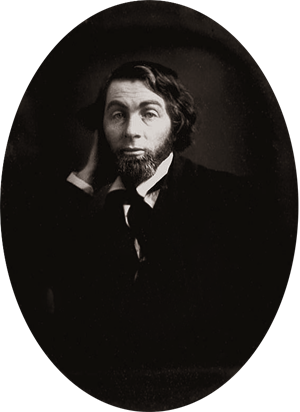PDF chapter test TRY NOW
Walt Whitman was born on May \(31\), \(1819\), in New York, U.S.A. He was an American Essayist, Poet and Journalist. He belonged to both the transcendentalist and realism periods in America. The Transcendentalist Movement in the \(1830s\) focussed on people being self-reliant and the goodness of people and nature. Realism focuses on the representation of facts as it is without distortion. Whitman's work portrays little of Transcendent ideologies as he was the bridge between the two periods. He wrote about the everyday life of common people. It can be seen as a reaction to the previous romantic movement, which focused on being idealistic and individual emotions.

Walt Whitman*
Whitman has to be credited for inventing the 'Free Verse', an open form of poetry which does not follow any rigid pattern or form. It does not contain musical patterns and rhyme schemes. It follows the rhythm of normal routine conversations. Whitman's interest in free verse stems from his love for Italian Opera.
Whitman quit his school at the age of \(11\) and yet managed to find work as a teacher, journalist and clerk. But he also took up odd jobs as a paper boy and apprentice to reach greater heights. Whitman had the greatest influence on Emmerson, the philosopher who believed that the human soul should be given prominence but only in a collective way. Whitman published 'Leaves of Grass' in \(1855\) with his own money. He spent writing and re-writing it throughout his life. He praises nature and the individual's role in it. It is even claimed as an American Epic by a few scholars. Rather than having the book and the author's name on the cover, it had a picture of Whitman himself in workman's clothes to represent the American common man who was a labourer.
Whitman's poems have timelessness as a unique feature. He talks about the constant battle or connection between the individual and nature. He envisioned Democracy as a political movement and vehemently wrote about it.
Famous works:
- Leaves of Grass
- Life and Adventures of Jack Engle
- The Half-Breed; A Tale of the Western Frontier
- Memoranda During the War
- Drum-Taps
Reference:
https://en.wikipedia.org/wiki/Walt_Whitman
Walt Whitman*: Unknown author, Public domain, via Wikimedia Commons
